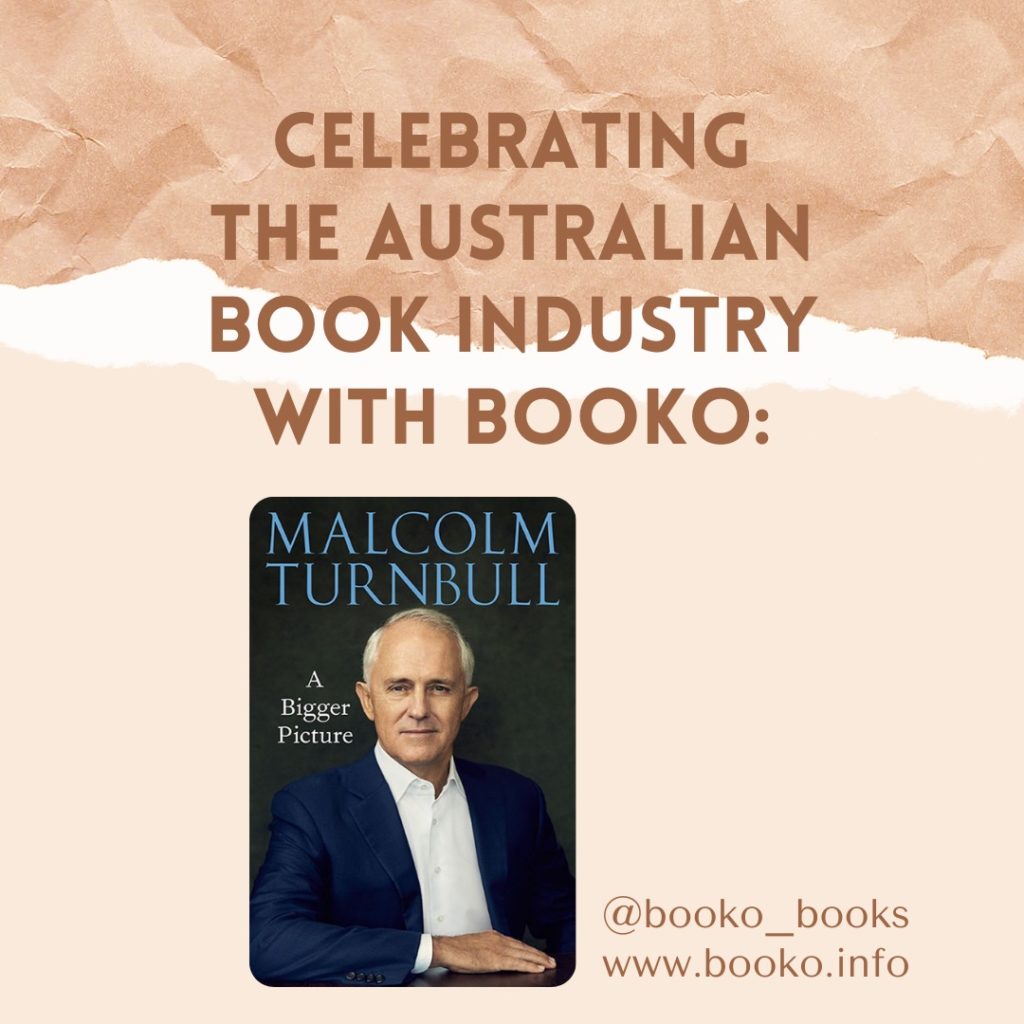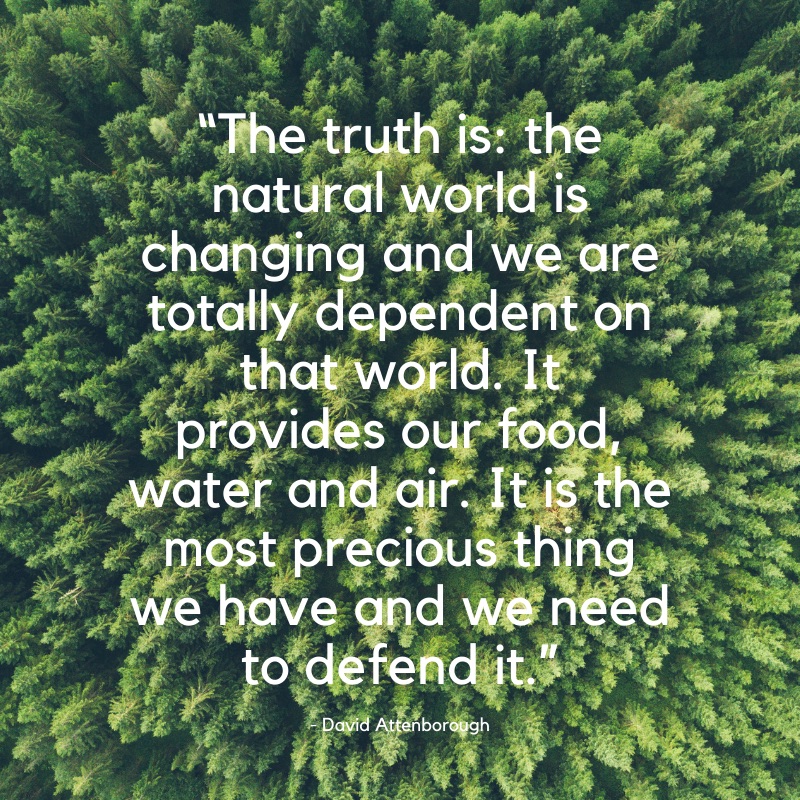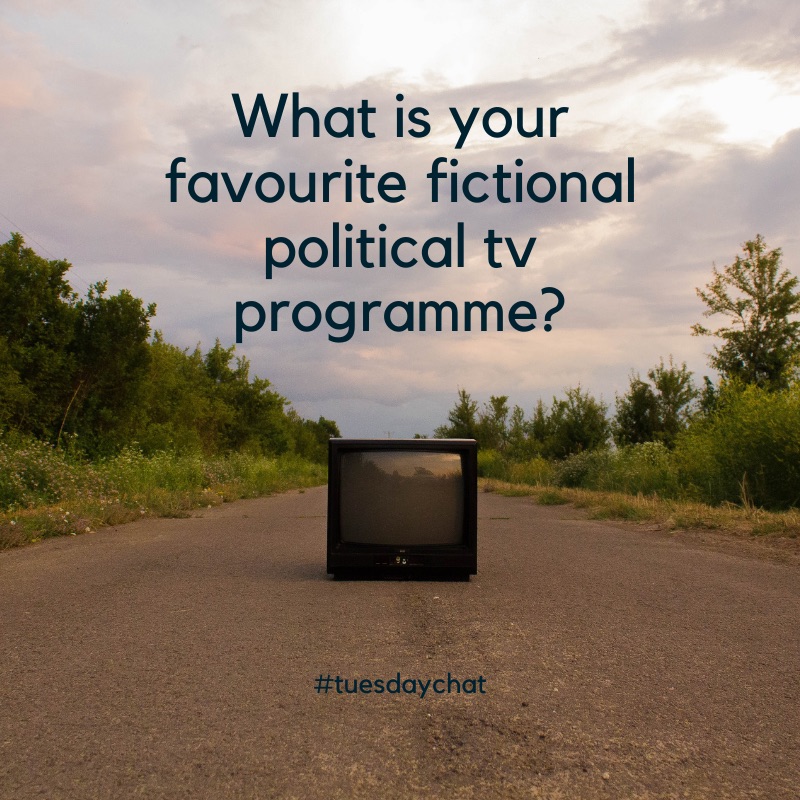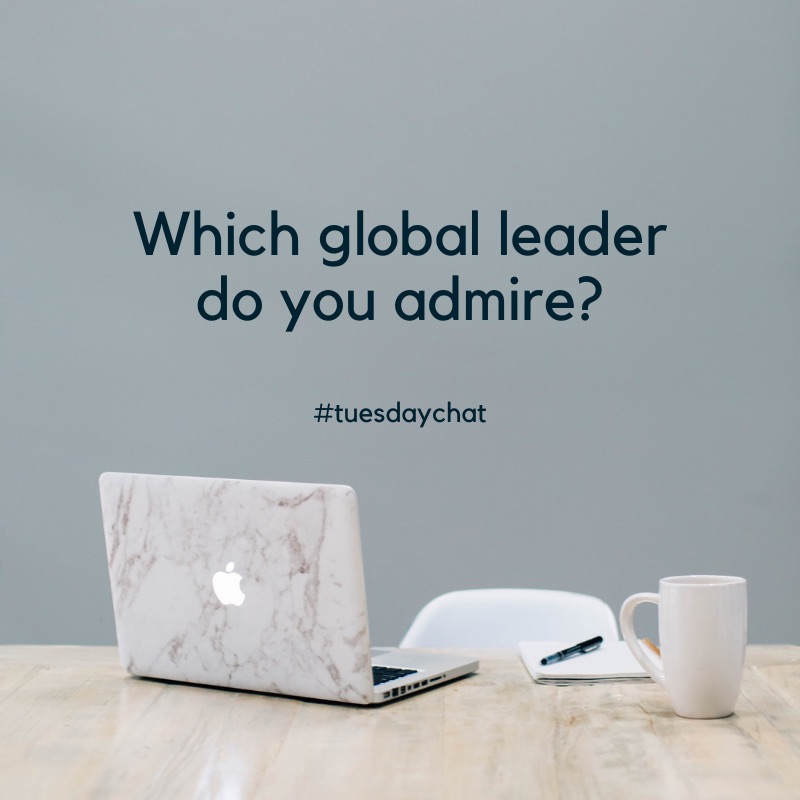Of all of the Ted Talks we share each Wednesday, this one by activist Hajer Sharief sits firmly in out Top 10. Everyone should participate in decision-making and politics and it starts at home.
Category Archives: Politics
Refresh your bookshelf with Booko: Jacinda Ardern: Leading with Empathy
Jacinda Ardern: Leading with Empathy carefully explores the influences; personal, social, political and emotional that have shaped New Zealand’s Prime Minister. Click to secure a copy now.

Celebrating The Australian Book Industry with Booko: The Bigger Picture
This month we are celebrating the Australian book industry. The ABIA longest has just been announced and we think it is full of some gems. Today’s clever pick is The Bigger Picture.

Monday Inspo
Have you watched David Attenborough’s A Life On Our Planet yet? It is a powerful message to the world by one of the most treasured natural historians of our time.

Lessons for Change
2020 has been a year like no other. Not only is the world suffering a deadly pandemic, racial tensions have been heightened, the environment continues to suffer and political leaders are vying for votes. Yikes. On reflection, it certainly has been a huge year.
Looking forward, we can take the lessons learned from 2020 and apply them into the future. It’s this thought that prompted us to look at lessons that have been learned from events that have happened in the past. We’ve found six great books that do just that. Sit back and get ready to be taken on a wild history ride.
What Happened by Hillary Clinton
‘In the past, for reasons I try to explain, I’ve often felt I had to be careful in public, like I was up on a wire without a net. Now I’m letting my guard down.’ – Hillary Rodham Clinton.
For the first time, Hillary Rodham Clinton reveals what she was thinking and feeling during one of the most controversial and unpredictable presidential elections in history. Now free from the constraints of running, Hillary takes you inside the intense personal experience of becoming the first woman nominated for president by a major party in an election marked by rage, sexism, exhilarating highs and infuriating lows, stranger-than-fiction twists, Russian interference and an opponent who broke all the rules. This is her most personal memoir yet. In these pages, she describes what it was like to run against Donald Trump, the mistakes she made, how she has coped with a shocking and devastating loss, and how she found the strength to pick herself back up afterwards. With humour and candour, she tells readers what it took to get back on her feet – the rituals, relationships and reading that got her through, and what the experience has taught her about life. She speaks about the challenges of being a strong woman in the public eye, the criticism over her voice, age and appearance, and the double standard confronting women in politics. She lays out how the 2016 election was marked by an unprecedented assault on democracy by a foreign adversary. By analysing the evidence and connecting the dots, Hillary shows just how dangerous the forces are that shaped the outcome, and why Americans need to understand them to protect their values and democracy in the future. The election of 2016 was unprecedented and historic. What Happened is the story of that campaign and its aftermath – both a deeply intimate account and a cautionary tale.
21 Lessons for the 21st Century by Yuval Noah Harari
We’ve highlighted this book on the blog before and believe it is important to include again. The Guardian newspaper credits Yuval Noah Harari with making serious non-fiction cool again. In his earlier books, the surprise bestsellers Sapiens and Homo Deus, he explained the history of humanity and the rise of civilisation in terms of evolutionary psychology. Now Yuval Noah Harari looks at the present. 21 Lessons for the 21st Century is a collection of essays about the big issues – AI and automation, Fake News and populism, religion, climate change – and how we can manage their impact on our lives. His talent at combining unexpected ideas into dazzling observations makes this a thought-provoking yet accessible read that helps us make sense of these uncertain times.
The Anarchy by William Dalrymple and Sid Sagar
In August 1765 the East India Company defeated and captured the young Mughal emperor and forced him to set up in his richest provinces a new government run by English traders who collected taxes through means of a vast and ruthless private army.
The creation of this new government marked the moment that the East India Company ceased to be a conventional international trading corporation, dealing in silks and spices, and became something much more unusual: an aggressive colonial power in the guise of a multinational business. In less than half a century it had trained up a private security force of around 260,000 men, twice the size of the British army, and had subdued an entire subcontinent, conquering first Bengal and finally, in 1803, the Mughal capital of Delhi itself. The Company’s reach stretched relentlessly until almost all of India south of the Himalayas was effectively ruled from a boardroom in London.
The Anarchy tells the remarkable story of how one of the world’s most magnificent empires disintegrated and came to be replaced by a dangerously unregulated private company, based thousands of miles overseas and answerable only to its shareholders. In his most ambitious and riveting book to date, William Dalrymple tells the story of the East India Company as it has never been told before, unfolding a timely cautionary tale of the first global corporate power.
Three hundred and fifteen years after its founding, with a corporate Mogul now sitting in the White House, the story of the East India Company has never been more current.
How Democracies Die by Steven Levitsky and Daniel Ziblatt
Democracies can die with a coup d’etat or they can die slowly. This happens most deceptively when in piecemeal fashion, with the election of an authoritarian leader, the abuse of governmental power and the complete repression of opposition. All three steps are being taken around the world and we must all understand how we can stop them. From the rule of General Augusto Pinochet in Chile to the quiet undermining of Turkey’s constitutional system by President Recip Erdogan, Harvard professors Steven Levitsky and Daniel Ziblatt draw insightful lessons from history to shine a light on regime breakdown across the 20th and 21st centuries. Based on years of research, they present a deep understanding of how and why democracies die; an alarming analysis of how democracy is being subverted today; and a guide for maintaining and repairing a threatened democracy, for governments, political parties and individuals. History doesn’t repeat itself. But we can protect our democracy by learning its lessons, before it’s too late.
48 Laws of Power by Robert Greene
Cunning, instructive, and amoral, this controversial bestseller distills 3,000 years of the history of power into 48 well-explicated laws. Law 1: Never Outshine the Master. Law 3: Conceal Your Intentions. Law 7: Get Others to Do the Work for You, but Always Take the Credit. Law 15: Crush Your Enemy Totally. Law 33: Discover Each Man’s Thumbscrew.
These are the laws of power in their unvarnished essence; the philosophies of Machiavelli (The Prince), Sun-tzu (The Art of War), Carl von Clausewitz, Talleyrand, the great seducer Casanova, con man Yellow Kid Weil, and other legendary thinkers and schemers. They teach prudence, stealth, mastery of one’s emotions, the art of deception, and the total absence of mercy. Like it or not, all have practical applications in real life.
Each law is illustrated with examples of observance or transgression drawn from history and featuring such famous figures as Queen Elizabeth I, Henry Kissinger, Mao, Alfred Hitchcock, P.T. Barnum, Haile Selassie, Catherine the Great, and Socrates. Convincing, practical, sometimes shocking, this book will fascinate anyone interested in gaining, observing, or defending against ultimate control.
Sisters in Law: How Sandra Day O’Connor and Ruth Bader Ginsburg Went to the Supreme Court and Changed the World by Linda Hirshman
The relationship between Sandra Day O’Connor and Ruth Bader Ginsburg, Republican and Democrat, Christian and Jew, western rancher’s daughter and Brooklyn girl, transcends party, religion, region, and culture. Strengthened by each other’s presence, these groundbreaking judges, the first and second to serve on the highest court in the land, have transformed the Constitution and America itself, making it a more equal place for all women. Linda Hirshman’s dual biography includes revealing stories of how these trailblazers fought for their own recognition in a male-dominated profession; battles that would ultimately benefit every American woman. She also makes clear how these two justices have shaped the legal framework of modern feminism, including employment discrimination, abortion, affirmative action, sexual harassment, and many other issues crucial to women’s lives. Sisters-in-Law combines legal detail with warm personal anecdotes that bring these very different women into focus as never before. Meticulously researched and compellingly told, it is an authoritative account of changing law and culture, and a moving story of a remarkable friendship.
Enjoy!
Why we must confront hard historical truths
In this thoughtful Ted Talk Hasan Kwame Jeffries emphasises the need to weave historical context, no matter how painful, into our understanding of modern society so we can disrupt the continuum of inequality massively affecting marginalised communities. Sometimes to move forward society must look back and confront the difficult history that has shaped widespread injustice.
#tuesdaychat
There are so many tv shows that explore the complex world of politics; The West Wing, Madame Secretary and Homeland are just a few, which is your favourite fictional political tv programme?

Be Inspired by Leadership Stories
The concept of leadership – and what qualities define a good leader – came to the fore this year as countries worldwide started to navigate through the turmoil associated with COVID. Many of us have craved guidance on a personal level as well, as we tackled the disruptions we experienced. So this week, as inspiration, we share stories about remarkable leaders who have tackled tremendous challenges with courage, tact and resilience.
Long Walk to Freedom by Nelson Mandela
Long Walk to Freedom was first published in 1994, only months after Nelson Mandela was elected President of South Africa in its first, democratic and post-apartheid election. Begun secretly during Mr Mandela’s long imprisonment, this autobiography was decades in the making. Despite knowing the worldwide reverence for his resilience, dignity and courage, the Nelson Mandela revealed here is surprisingly human – he is a naive and headstrong youth, a neglectful husband, a distracted father; a pragmatist who chooses tactics over principles. Yet it is indeed his famed resilience and positivity that enables him to survive, and even accomplish political objectives, during his 27 years at the notorious Robben Island prison. Long Walk to Freedom is also available as a picture book suitable for younger readers aged 5 and up.
Interventions: a Life in War and Peace by Kofi Annan with Nader Mousavizadeh
For over 40 years, Kofi Annan was at the centre of international diplomacy, working for the United Nations on issues including health, refugees and peacekeeping, culminating in his appointment as the Secretary-General. Interventions: a Life in War and Peace shows us glimpses of the complex and difficult task of balancing the interests of 190+ UN member states. Mr Annan writes eloquently yet candidly, not only about the successes (the Responsibility to Protect doctrine, and being awarded the Nobel Peace Prize in 2001), but also UN’s failures (such as the Bosnian War and the Rwandan genocide), as well as highlighting the ongoing challenges due to a general slow retreat of world governments from the UN’s founding purpose.
A Promised Land by Barack Obama
The release of A Promised Land, the first volume of Barack Obama’s memoirs about his presidency, looks to be the biggest publishing event of 2020 – with an initial print run of over 3 million copies in 25 languages. A Promised Land starts with Mr Obama’s presidential campaign in 2008, ending upon the death of Osama bin Laden in 2011, and “aims to provide an honest accounting of my presidency, the forces we grapple with as a nation, and how we can heal our divisions and make democracy work for everybody”. It is an account of both public progress and personal growth. Expect fascinating insights and assured writing – Barack Obama was already a successful author before becoming President.
The Other Side of the Coin: the Queen, the Dresser and the Wardrobe by Angela Kelly
The Other Side of the Coin offers a rare and authoritative glimpse into the life of the Queen by a still-serving, senior member of staff. Angela Kelly is the Personal Assistant and Senior Dresser for the Queen, and has personal royal approval to reveal these charming anecdotes and never-before-seen photographs. The Queen’s distinctive outfits – which are often imbued with meaning and used as a tool of diplomacy – are not only curated by Angela Kelly, but sometimes created by her as well. Behind the focus on fashion, The Other Side of the Coin shows us the logistical demands of running the Royal Household, and glimpses of the Queen’s famed commitment to duty, hard work and service.
In Extremis: The Life of War Correspondent Marie Colvin by Lindsey Hilsum
Intrepid, uncompromising, hard-drinking, a great raconteur – Marie Colvin lived the life of a stereotypical war correspondent. She was much admired for her journalistic prowess, and also famous for her glamorous personal life – full of wild parties and unsuitable relationships. Marie Colvin’s realisation that journalism can save lives motivated her to take ever greater risks in uncovering stories. In 2012 she died in an explosion while reporting in Syria. Lindsey Hilsum wrote In Extremis as a tribute to her friend and peer, drawing on unpublished diaries and interviews with friends, family and colleagues. As a fellow war correspondent, Hilsum’s own knowledge of the world’s conflict zones adds great depth and enlightenment to the narrative.
Being Nixon: a Man Divided by Evan Thomas
Richard Nixon: villain or misunderstood? Acclaimed biographer Evan Thomas balances sympathy with criticism as he tries to unravel the psyche of a complicated man. Nixon was socially awkward, insecure, solitary, and self-conscious of his humble origins – not the ideal personality for a politician. These behaviours created a tense internal balance – at their best, these insecurities gave him the drive to push past self-doubt, to dare to be brave, and get things done; at their worst, they fuelled petty vindictiveness, racist outbursts, and a wilful disregard of the law – leading to his spectacular downfall. And despite its ignominious end, Evan Thomas reminds us that the Nixon presidency had many significant achievements, including détente with China and the Soviet Union, the creation of the EPA, and proposing major health-care reforms.
#tuesdaychat
Past and present, the world has had some inspiring leaders who have made a great impact on society whether in times of unrest, hardship or boom. Which global leader do you admire the most?

Election Time
It’s been a year like no other with a devastating global pandemic, heightening racial tension, growing climate catastrophes and political upheaval. To top it all off it is also an election year for a few countries so this week we are having a closer look at the leadership options facing both New Zealand and the United States as their countries head to the polls.
The two countries have leaders that both capture the world’s attention, albeit for very different reasons and with very different agendas. Let’s take a closer look at the lives behind the cameras and what we read in the newspapers.
Let’s start with New Zealand:
Jacinda Ardern by Michelle Duff
Michelle Duff delves into Ardern’s beginnings in small-town New Zealand, discovering a nose-ringed teen fighting for equality and her own identity in a devout Mormon family. Duff tracks Ardern’s political career, from being dismissed as a ‘show pony’ to her compassion during one of New Zealand’s biggest tragedies, the Christchurch mosque terror attack of 2019. In its aftermath, Ardern has become a global icon for her strength and decisiveness while uniting a country in shock and mourning. Ardern attracted international headlines for being the second world leader to give birth while in office. But why was having a baby so meaningful, and what does it say about the continued struggle for gender equality? Has Ardern really been a transcendent leader, and what enduring mark might she leave on the political landscape? This is an engrossing and powerful exploration of one of the most intriguing political stories of our time, telling us as much about one young woman’s ascendancy as it does about the country that elected her.
Pull No Punches by Judith Collins
This is a frank account from the National Member of Parliament Judith Collins sharing the highs and lows of a political life. From her humble beginnings as the youngest daughter of Labour-voting farming parents, Judith Collins has carved a path to almost the very top of New Zealand politics. Collins grew up in rural Walton, Waikato, on a dairy farm. At the age of 10 she entered politics, running for class president. She won. After a successful career as a lawyer, Collins became the MP for Papakura in 2002, alongside fellow new recruit John Key. When Key and National won office in 2008, Collins became the Minister for Police, Corrections and Veterans. Pull No Punches is the candid story of a determined Minister at the centre of New Zealand political life and of a woman who is resilient in the face of adversity. Funny, forthright and fearless, Collins reveals what it is like to survive -and thrive- for two decades as a senior female politician.
Women, Equality, Power by Helen Clarke
Helen Clark has been a world leader for 35 years from first entering parliament in 1982 as a 31-year-old to being Prime Minister of New Zealand for nine years, to serving as Administrator of the United Nations Development Programme for eight years. One of her key focuses throughout this time has been the empowerment of women and she has paved the way for other women to step up and lead. With a foreword by the Rt Hon Jacinda Ardern, this is a timely and important book. An analysis of Helen’s speeches shows that while the position of women has improved over time, this change is very fragile and that we need to keep working towards equality for women in many crucial areas. Women, Equality, Power also serves as a celebration of an outstanding leader who continues to strive and work for change.
And now to the United States:
Promises to Keep by Joe Biden
As a United States senator from Delaware since 1973, Joe Biden has been an intimate witness to the major events of the past four decades and a relentless actor in trying to shape recent American history. He has seen up close the tragic mistake of the Vietnam War, the Watergate and Iran-contra scandals, the fall of the Berlin Wall, the reunification of Germany, the disintegration of the Soviet Union, the aftermath of the 9/11 attacks, a presidential impeachment, a presidential resignation, and a presidential election decided by the Supreme Court. He’s observed Nixon, Ford, Carter, Reagan, Clinton, and two Bushes wrestling with the presidency; he’s traveled to war zones in Europe, the Middle East, and Africa and seen firsthand the devastation of genocide. He played a vital role by standing up to Ronald Reagan’s effort to seat Judge Robert Bork on the Supreme Court, fighting for legislation that protects women against domestic violence, and galvanising America’s response (and the world’s) to Slobodan Milosevic’s genocidal march in the Balkans.
In Promises to Keep, Biden reveals what these experiences taught him about himself, his colleagues, and the institutions of government. With his customary candour, Biden movingly recounts growing up in a staunchly Catholic multigenerational household in Scranton, Pennsylvania, and Wilmington, Delaware; overcoming a demoralising stutter; marriage, fatherhood, and the tragic death of his wife Neilia and infant daughter Naomi; remarriage and re-forming a family with his second wife, Jill; success and failure in the Senate and on the campaign trail; two life-threatening aneurysms; his relations with fellow lawmakers on both sides of the aisle; and his leadership of powerful Senate committees. Through these and other recollections, Biden shows us how the guiding principles he learned early in life – the obligation to work to make people’s lives better, to honour family and faith, to get up and do the right thing no matter how hard you’ve been knocked down, to be honest and straightforward, and, above all, to keep your promises – are the foundations on which he has based his life’s work as husband, father, and public servant.
Promises to Keep is the story of a man who faced down personal challenges and tragedy to become one of our most effective leaders. It is also an intimate series of reflections from a public servant who refuses to be cynical about political leadership, and a testament to the promise of the United States.
Too Much and Never Enough by Mary L. Trump
The NY Times shared some amazing statistics recently: “Since it was released in May, the latest book in the Hunger Games series, The Ballad of Songbirds and Snakes, has sold 1.3 million copies, a home run of a best seller by publishing’s standards. Mary L. Trump’s memoir about her uncle, Too Much and Never Enough, outsold it in its first week”. So we thought, we’d better pop it on this list for you.
Mary L. Trump, a trained clinical psychologist and Donald’s only niece, shines a bright light on the dark history of their family in order to explain how her uncle became the man who now threatens the world’s health, economic security, and social fabric.
Mary Trump spent much of her childhood in her grandparents’ large, imposing house in the heart of Queens, where Donald and his four siblings grew up. She describes a nightmare of traumas, destructive relationships, and a tragic combination of neglect and abuse. She explains how specific events and general family patterns created the damaged man who currently occupies the Oval Office, including the strange and harmful relationship between Fred Trump and his two oldest sons, Fred Jr. and Donald. A firsthand witness to countless holiday meals and family interactions, Mary brings an incisive wit and unexpected humour to sometimes grim, often confounding family events. She recounts in unsparing detail everything from her uncle Donald’s place in the family spotlight and Ivana’s penchant for regifting to her grandmother’s frequent injuries and illnesses and the appalling way Donald, Fred Trump’s favourite son, dismissed and derided him when he began to succumb to Alzheimer’s. Numerous pundits, armchair psychologists, and journalists have sought to parse Donald J. Trump’s lethal flaws. Mary L. Trump has the education, insight, and intimate familiarity needed to reveal what makes Donald, and the rest of her clan, tick. She alone can recount this fascinating, unnerving saga, not just because of her insider’s perspective but also because she is the only Trump willing to tell the truth about one of the world’s most powerful and dysfunctional families.
Rage by Bob Woodward
Rage goes behind the scenes like never before, with stunning new details about early national security decisions and operations and Trump’s moves as he faces a global pandemic, economic disaster and racial unrest. Woodward, the No 1 internationally bestselling author of 13 No 1 bestsellers, including Fear: Trump in the White House, shows Trump up close in his entirety before the 2020 presidential election. President Trump has said publicly that Woodward has interviewed him. What is not known is that Trump provided Woodward a window into his mind through a series of exclusive interviews. At key decision points, Rage shows how Trump’s responses to the crises of 2020 were rooted in the instincts, habits and style he developed during his first three years as president. Rage draws from hundreds of hours of interviews with first-hand witnesses, as well as participants’ notes, emails, diaries, calendars and confidential documents. Woodward obtained 25 personal letters exchanged between Trump and North Korean leader Kim Jong Un that have not been public before. Kim describes the bond between the two leaders as out of a ‘fantasy film’, as the two leaders engage in an extraordinary diplomatic minuet. Rage will be the foundational account of the Trump presidency, its turmoil, contradictions and risks. It is an essential document for anyone seeking an accurate inside view of the Trump years – volatile and vivid.
Enjoy!

















